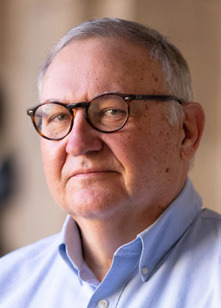All things Nebraska
In November, Nebraska voters overwhelmingly approved a ballot initiative allowing workers to earn sick leave for personal or family needs. They also voted to legalize medical marijuana.
Passage of the two measures are the latest example of how politically popular issues – such as raising the minimum wage and expanding Medicaid to provide health care for the working poor – can easily pass when put to a vote of the people, after they didn’t have a prayer in the Legislature.
Now, there’s concern that the will of the people is being betrayed by state lawmakers.
Some background: Initiative 436, the paid sick leave measure, was approved by nearly 75% of all voters. It allows workers at businesses with less than 20 employees to earn up to a week off in paid sick leave a year; you could earn seven days a year at companies with 20 or more workers. For every 30 hours you work, you earn an hour of sick leave.
Two marijuana issues passed, both by more than 2-to-1 margins. It allowed a person, with written permission of a doctor, the right to acquire and possess up to 5 ounces of cannabis for medical purposes, which is already allowed in 39 other states.
In Nebraska, the right to enact a law or amend the constitution via petition, or rescind or retain a law via a voter referendum, are essential parts of the state’s unique, one-house Unicameral. The power of the people to vote on ballot issues is often referred to as the “second house” of the Legislature because of it.
Not every state grants citizens that right – neighboring Iowa and Kansas are among the 24 states that don’t.
The famous populist of the Plains, William Jennings Bryan, was a big fan of citizen-led initiatives and referendums, calling them essential “to restore government to the hands of the people and keep it within their control.”
But the second house has taken some spankings lately in the first house, the Legislature.
Lawmakers fended off a four-day-long filibuster recently to approve amendments to the sick leave measure, exempting businesses with 10 or fewer employees, seasonal employees, and young workers under 16 years of age. Advocates said the changes made paid sick leave “more workable” for employers, would reduce wages and hours for workers, and protected small businesses from “negative consequences,” which they said included increased costs.
Supporters of paid sick leave, meanwhile, decried the effort to undermine what voters approved, and pointed to research showing that paid sick leave helps employers by reducing worker turnover and keeping sick workers from having to work. My guess is that it also provides an incentive to take a job in a state with thousands of unfilled jobs.
State Sen. Megan Hunt of Omaha argued that no one should have to choose between earning a wage and taking care of their health.
Workers, she said, “deserve the basic dignity of a paid sick day if they need it.”
Just the other day, it happened again as lawmakers adopted an amendment to the 2022 vote-approved hike in the state’s minimum wage.
The change – if it finally becomes law – would reduce the minimum wage for 14 and 15 year olds and teen-aged workers in training from $15 an hour to $13.50 an hour, effective next year.
Lincoln Sen. Jane Raybould, whose family owns a grocery chain, introduced the change, maintaining the cost of raising the minimum wage for all workers can’t be absorbed by some small businesses, and more teens might be hired if they could be paid less.
Raybould, a Democrat, also argued that lawmakers have the authority to amend voter-passed initiatives so that they’re “fair for all” – something Hunt and some other senators disputed.
Hunt went even further, accusing Raybould of “a blatant, bald-faced” case of “self-dealing,” and of second guessing voters intent.
Legislators would be wise to tread lightly when making major changes to what voters approved – particularly when there’s a clear mandate from voters to do something.
There’s an old saying in politics, “the voters are always right,” and those voters decide if a politician gets to continue to represent them.

.jpg)










